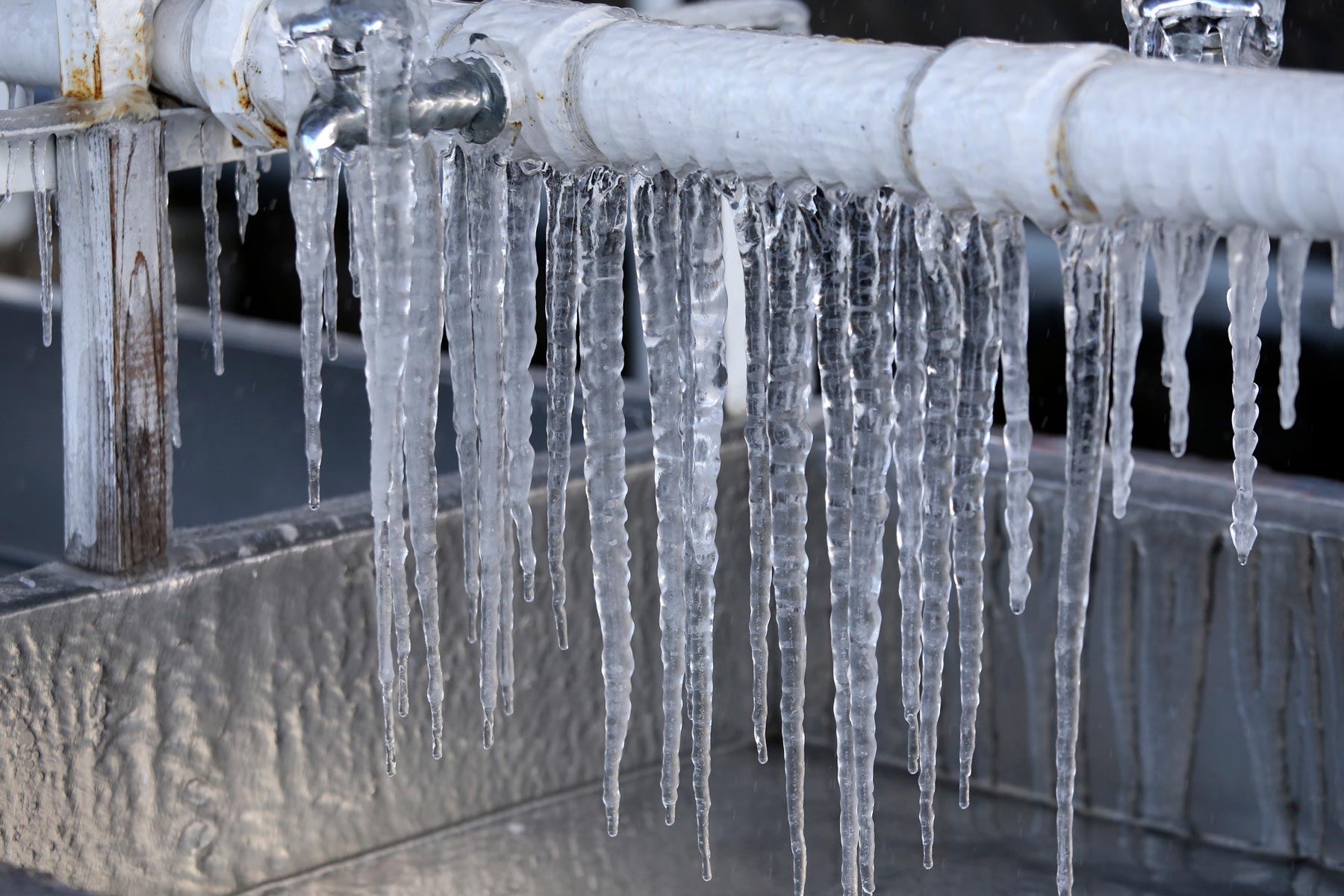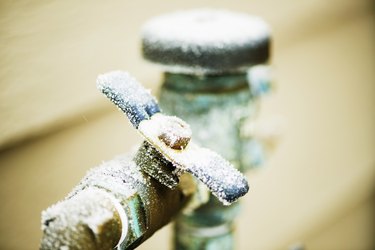Guidance for Preventing Frozen Pipes in Winter: Expert Advice
Guidance for Preventing Frozen Pipes in Winter: Expert Advice
Blog Article
What are your thoughts about 6 Ways to Prevent Frozen Pipes?

Cold weather can damage your pipes, especially by freezing pipes. Here's just how to avoid it from occurring and what to do if it does.
Intro
As temperature levels decline, the danger of frozen pipes boosts, possibly leading to costly repair services and water damage. Understanding how to avoid frozen pipelines is important for homeowners in chilly climates.
Prevention Tips
Insulating at risk pipes
Wrap pipes in insulation sleeves or utilize heat tape to shield them from freezing temperatures. Concentrate on pipelines in unheated or exterior locations of the home.
Heating techniques
Keep indoor areas appropriately warmed, especially locations with pipes. Open cupboard doors to permit warm air to distribute around pipelines under sinks.
Exactly how to determine icy pipes
Try to find decreased water flow from faucets, unusual odors or sounds from pipes, and noticeable frost on revealed pipes.
Long-Term Solutions
Structural adjustments
Consider rerouting pipelines far from exterior walls or unheated areas. Add added insulation to attic rooms, cellars, and crawl spaces.
Updating insulation
Buy premium insulation for pipelines, attic rooms, and wall surfaces. Appropriate insulation helps keep regular temperature levels and minimizes the threat of frozen pipelines.
Securing Outside Plumbing
Yard pipes and outside taps
Detach and drain yard hoses prior to winter. Mount frost-proof faucets or cover outdoor taps with protected caps.
Comprehending Frozen Pipes
What triggers pipes to ice up?
Pipelines ice up when revealed to temperature levels listed below 32 ° F (0 ° C) for expanded periods. As water inside the pipes ices up, it expands, taxing the pipe wall surfaces and possibly triggering them to break.
Risks and damages
Icy pipes can cause water disruptions, residential property damages, and costly repair services. Ruptured pipes can flooding homes and trigger comprehensive architectural damage.
Indicators of Frozen Pipes
Identifying icy pipelines early can avoid them from bursting.
What to Do If Your Pipelines Freeze
Immediate activities to take
If you think frozen pipes, keep faucets open to alleviate stress as the ice melts. Make use of a hairdryer or towels soaked in warm water to thaw pipelines gradually.
Conclusion
Stopping frozen pipes needs aggressive actions and quick actions. By recognizing the reasons, indications, and safety nets, house owners can secure their plumbing during winter.
Helpful Tips to Prevent Frozen Pipes this Winter
UNDERSTANDING THE BASICS: WHY PIPES FREEZE AND WHY IT’S A PROBLEM
Water freezing inside pipes is common during the winter months, but understanding why pipes freeze, and the potential problems it can cause is crucial in preventing such incidents. This section will delve into the basics of why pipes freeze and the associated problems that may arise.
THE SCIENCE BEHIND FROZEN PIPES
When water reaches freezing temperatures, it undergoes a physical transformation and solidifies into ice. This expansion of water as it freezes is the primary reason pipes can burst. As the water inside the pipe freezes, it expands, creating immense pressure on the walls. If the pressure becomes too great, the pipe can crack or rupture, leading to leaks and water damage.
FACTORS THAT CONTRIBUTE TO PIPE FREEZING
Low Temperatures: Extremely cold weather, especially below freezing, increases the risk of pipes freezing. Uninsulated or Poorly Insulated Pipes: Pipes located in unheated areas, such as basements, crawl spaces, or attics, are more prone to freezing. Insufficient insulation or lack of insulation altogether exacerbates the problem. Exterior Wall Exposure: Pipes running along exterior walls are susceptible to freezing as they encounter colder temperatures outside. Lack of Heating or Temperature Regulation: Inadequate heating or inconsistent temperature control in your home can contribute to frozen pipes. PROBLEMS CAUSED BY FROZEN PIPES
- Pipe Bursting: As mentioned earlier, the expansion of water as it freezes can cause pipes to burst, resulting in significant water damage.
- Water Damage: When pipes burst, it can lead to flooding and water damage to your property, including walls, ceilings, flooring, and personal belongings.
- Structural Damage: Prolonged exposure to water from burst pipes can compromise the structural integrity of your home, leading to costly repairs.
- Mold and Mildew Growth: Excess moisture from water damage can create a favorable environment for mold and mildew growth, posing health risks to occupants.
- Disrupted Water Supply: Frozen pipes can also result in a complete or partial loss of water supply until the issue is resolved.
WHY CERTAIN PIPES ARE MORE PRONE TO FREEZING
- Location: Pipes located in unheated or poorly insulated areas, such as basements, crawl spaces, attics, or exterior walls, are at higher risk of freezing.
- Exterior Pipes: Outdoor pipes, such as those used for irrigation or exposed plumbing, are particularly vulnerable to freezing as they are directly exposed to the elements.
- Supply Lines: Pipes that carry water from the main water supply into your home, including the main water line, are critical to protect as freezing in these lines can affect your entire plumbing system.
- Underground Pipes: Pipes buried underground, such as those connected to sprinkler systems or outdoor faucets, can be susceptible to freezing if not properly insulated.
https://busybusy.com/blog/helpful-tips-to-prevent-frozen-pipes-this-winter/

As a devoted person who reads on Preventing and dealing with frozen pipes, I think sharing that portion was a great idea. Do you know about somebody who is interested by the topic? Take a moment to promote it. Bless you for your time. Kindly check up our site back soon.
Click Here! Report this page